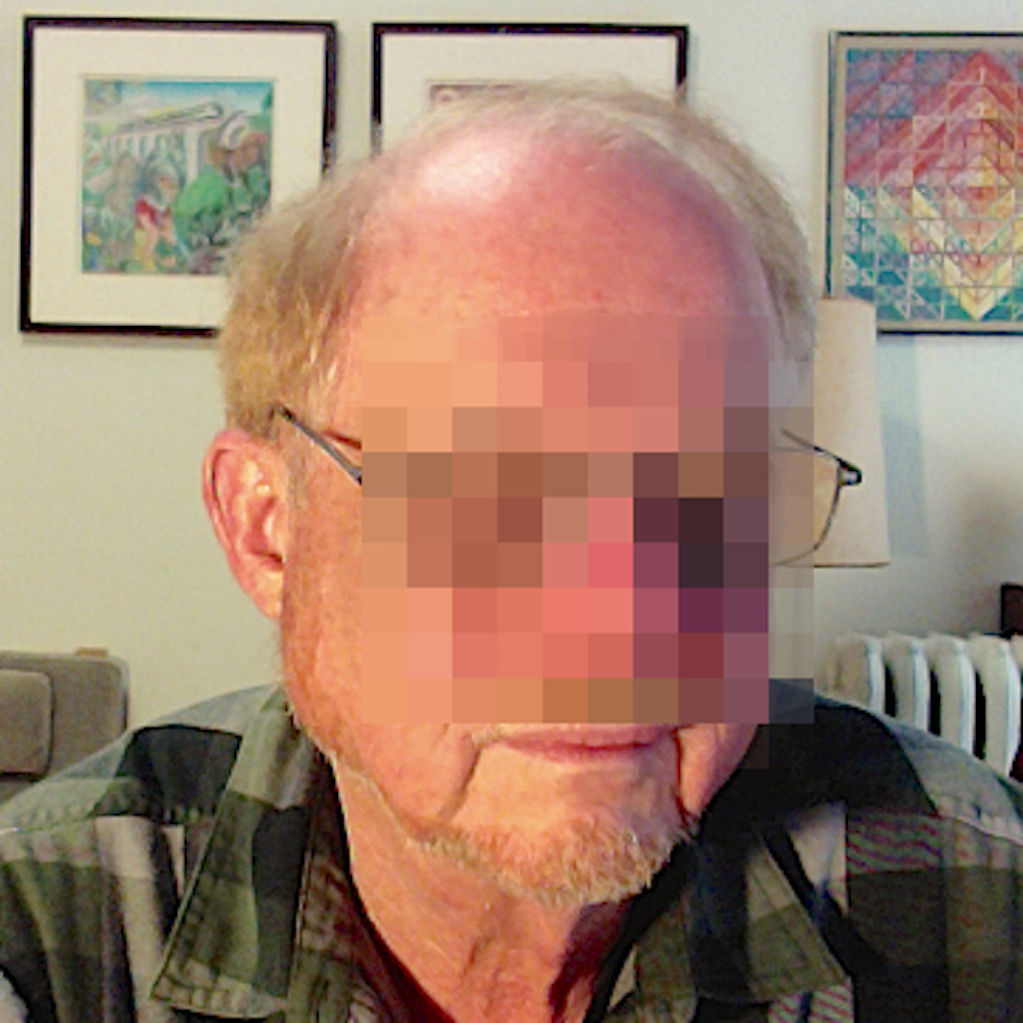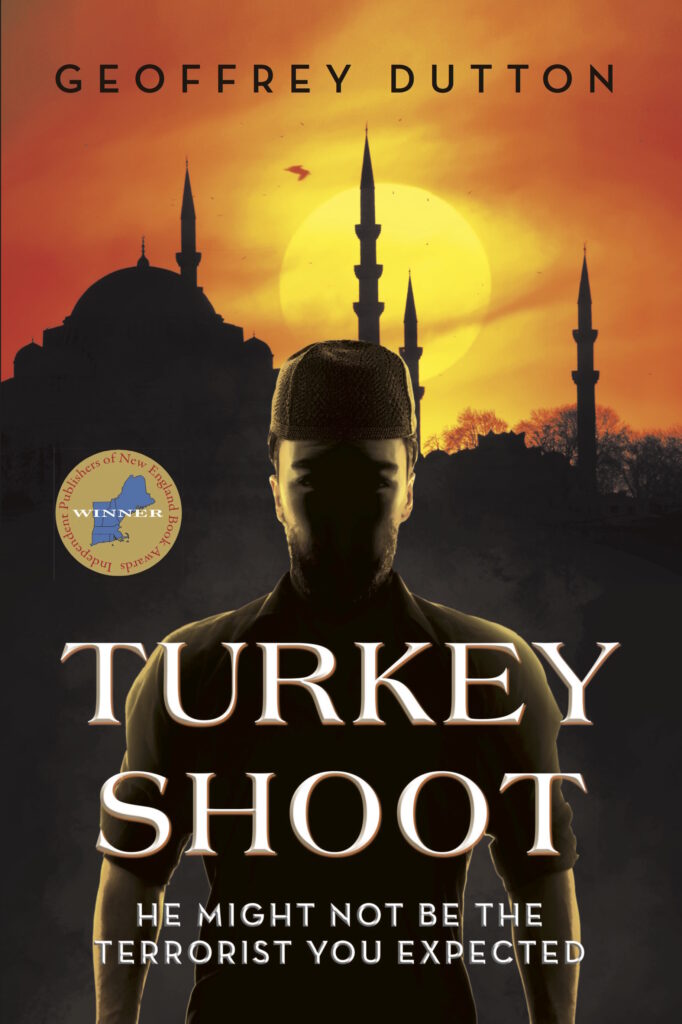

What is the title, genre, and theme of your work-in-progress?
Her Own Devices: A Novel or Two — To be published in 2024 by Guernica World Editions. As for genre, it’s hard to slot (and probably to shelve). I call it “Women’s literary crime fiction with magical and autofictional elements.” I know that’s a mouthful, but as it’s a novel or two, a one tag wouldn’t do it justice. The principle plot theme is conveyed by words you see on the proposed cover: “You never really know who your friends really are until you need them, and even then you still might not know, but that’s okay.”
How long did it take you to write this book?
I started writing by the seat of my trousers in June 2019 and will submit for publication its seventh revision by September 2023. It’s a sequel to my novel Turkey Shoot that took three years to write, so much of the research was already done. Both took seven drafts. Turkey Shoot received the 2018 Courage in Fiction award from Independent Publishers of New England.
You said this is a sequel. How does it connect to the previous book?
Turkey Shoot was an international conspiracy thriller, set in Piraeus, Greece and several cities in Turkey, that introduced the four main characters in Her Own Devices. One of them died and has been resurrected as a ghost who observes and narrates what he sees. The protagonist in Devices was his lover and co-conspirator, and has a five-year-old son by him, conceived on his deathbed. My motivation for the sequel was to redeem them from what I had to do to them. While Turkey Shoot was tragedy, formally Devices is comedy, but includes many tense situations.
How much research did you need to do for your book?
Overall quite a lot, mostly on Google. As it is set in a place I’ve never been to (Athens) and collects characters from five countries speaking English, Greek, German, Turkish, and Arabic (mostly rendered in English), I needed to identify idioms and translate a lot of words and phrases. For locations I used Google maps and street views intensively to acquaint myself with neighborhoods, supplemented by local blog posts, travel tips, transit maps and schedules, and even restaurant menus. One tricky aspect of writing Turkey Shoot was having to research terrorist movements and preparing poisons. I also read some fiction set those countries. Readers tell me the settings feel real. Yet, #ownvoices it isn’t.
What inspired the idea for your book?
In the case of Turkey Shoot, it was the the Syrian refugee crisis brought on by Middle East meddling by the US “coalition” and the advent of Isis, both portrayed in the book. My tale is told entirely from the points of view of its aspiring conspirators. Devices was not inspired by particular current or historical events, but once I got into it I decided to focus it on child abductions in Greece and across Europe to drive the plot. That made sense as my unmarried heroine had a young son to protect. At first I thought I was writing another thriller, but that aspect suggested a different treatment. In general, though, what inspired me to write it all all was the raw deal I had given my characters. I felt obligated to give them a second chance. To their great credit, they came through, so much so that I let my protagonist write the Foreword.
What author in your genre do you most admire, and why?
Easily, John le Carré, who died last year. Reading his great novel, A Perfect Spy changed how I was writing Turkey Shoot. I’ve written about his style and its influence on mine.
What do you think makes a good story?
I tend to dismiss the Aristotelian rubric that genre fiction and feature films often slavishly follow — Three prescriptive acts, early inciting incident, protagonist versus antagonist vying for high stakes, and all that, and have said why in no uncertain terms. I look for characters whose emotions and complexities I can sink my teeth into without subjecting me to melodrama, settings I can visualize, hear, and sometimes smell, a few surprise developments, gnarly convolutions, and an ending that makes me say “What?!”
What was your hardest scene to write, and why?
It’s always the same for me: Sex scenes. I tend to race through them when reading because the immodesty involved makes me blush. Mine are not at all graphic, more of an excuse for pillow talk. That’s not to say other scenes weren’t difficult to get right; I have a tendency to pack in too many events and struggle to maintain POV when a lot is going on
What’s your writing software of choice?
For short pieces or collections of unrelated ones MS Word works for me. For novels or any work with multiple chapters, Word sucks, and I long ago switched to Scrivener because it makes the text so much easier to structure and navigate texts and compile some or all into various formats.
What would you say to an author who wanted to design their own cover?
By all means, visualize! Sketch or mock up your best ideas and, unless you are talented as a designer, give your concepts to a pro, and make them iterate until you are happy with the result. One of the two covers here (Turkey Shoot) is from an artist at the publisher to whom I suggested this design when the first two iterations did not reflect the content well. The other cover is my own mock-up, put together in Photoshop and Word; the final design for it will be created by my publisher, and could come out quite differently.
- Author website: https://perfidy.press
- All-purpose blog: https://progressivepilgrim.review
- Bookstore: https://bookshop.org/shop/perfidy-press
- Stories and essays at medium.com: https://medium.com/@gdutton
- Book at Amazon in UK: https://www.amazon.co.uk/Turkey-Shoot-might-terrorist-expected-ebook/dp/B07H8R376D
- Excerpts from earlier revisions of Devices: https://thewritelaunch.com/author/geoffrey-dutton/
- Essays and book reviews: https://bookscover2cover.com/author/geoffrey-dutton/
- Linked In, FWIW: https://www.linkedin.com/in/duttongeoffrey/
- Twitter: @PerfidyPress
- Not to be confused with the prolific Australian critic, poet, essayist, novelist, editor, and publisher Geoffrey Dutton (1922-1998): https://en.wikipedia.org/wiki/Geoffrey_Dutton